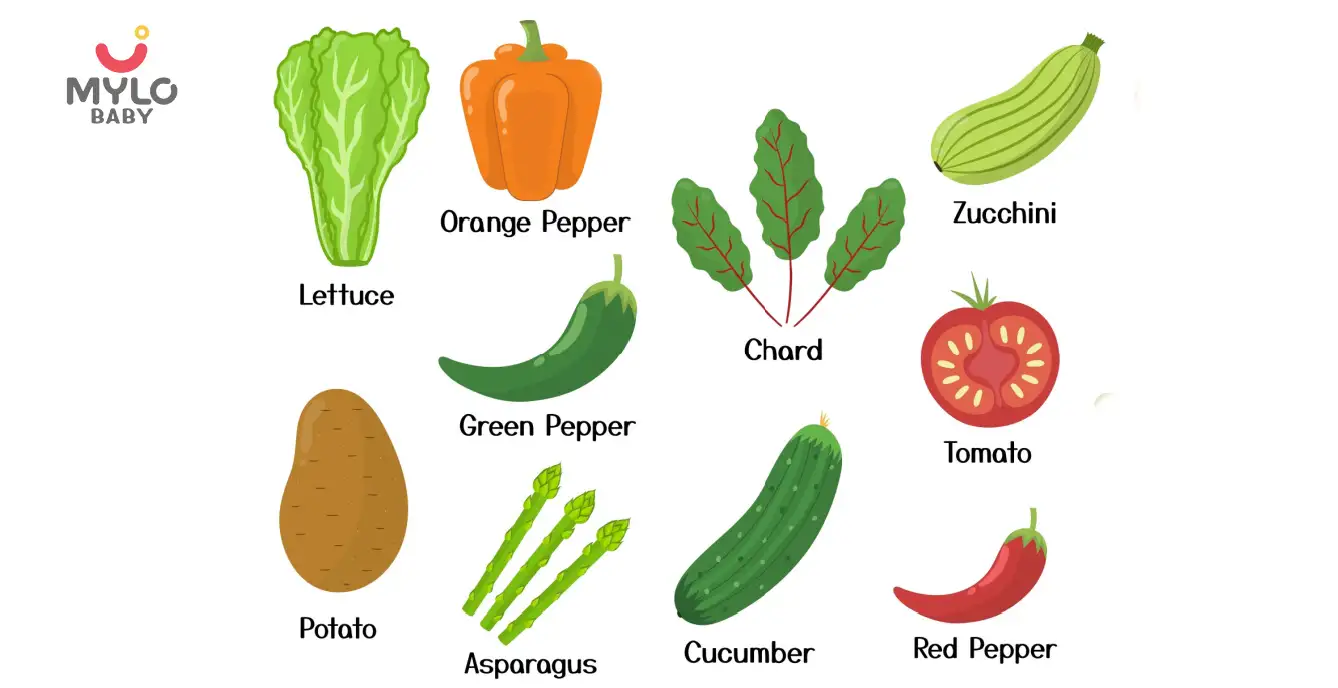Home

Maternity Leave 101: Rules, Benefits & Timings for Expectant Working Women
In this Article

Pregnancy
Maternity Leave 101: Rules, Benefits & Timings for Expectant Working Women
Updated on 6 February 2024
If you're juggling the excitement of impending motherhood with the demands of your career, you're in the right place. In this article, we'll be your trusty guide through the maze of maternity leave rules, benefits, and timings. Whether you're a first-time mom-to-be or navigating the waters of maternity leave for the second or third time, this article will decode everything you need to know about maternity leave in India!
Maternity Leave Meaning
Maternity leave is a period of time that a working woman takes off from work to give birth to and care for her newborn child. This leave is granted to expectant mothers to ensure their physical and emotional well-being during pregnancy and after childbirth. It allows them to recover from the physical demands of pregnancy and to bond with their newborn.
Maternity Leave Policy
In India, maternity leave is regulated by the Maternity Benefit Act, 2017, which provides certain rights and benefits to pregnant women in the workforce. Here are the maternity leave rules in a nutshell:
1. Duration of Maternity Leave
Previously, women employees in India were entitled to 12 weeks (3 months) of maternity leave. But now, maternity leave has been increased to 26 weeks (6 months) from March 2017.
2. Applicability
All establishments with more than 10 employees are mandated to provide maternity benefits to female employees, including factories, shops, plantations, and mines in both organized and unorganized sectors.
3. Eligibility Based on Children
If a woman already has 2 kids, she is eligible for 12 weeks of maternity leave.
4. Coverage
The benefit extends to both private and public sector employees, including mothers who adopt children.
4. Adoption Leave
Women adopting a child under 3 months old are entitled to 12 weeks of leave.
5. Salary
During the period of maternity leave, women are entitled to receive their full salary. The employer is legally bound to provide this benefit, and it cannot be denied or reduced due to the absence of the employee.
6. Work from Home Option
The act introduced the option for mothers to work from home after completing the 26 weeks of maternity leave, subject to the nature of work and employer's terms.
7. Commissioning Mother's Leave
A commissioning mother can also avail 12 weeks of leave from the date she receives the child.
8. Crèche Facilities
Establishments with 50 or more employees must provide crèche facilities and allow women employees to visit four times a day.
9. Mandatory Information
Employers are required to inform female employees of the maternity benefit.
10. Timing of Maternity Leave
A female employee can take maternity leave only eight weeks before her due date of delivery.
11. Miscarriage or Medical Termination
In the case of miscarriage or medical termination of pregnancy, a female employee can take leave for up to 6 weeks.
12. Tubectomy Operation
A female employee is entitled to take two weeks' leave in case of a tubectomy operation.
You may also like: Paternity Leave: The Ultimate Guide to Rules, Rights and Benefits
Maternity Benefits in India
Maternity leave in India comes with several benefits that are designed to support expectant working women. Here are the key benefits of maternity leave:
1. Job Security
One of the significant advantages of maternity leave is job security. The Maternity Benefit Act ensures that a woman's job is protected during her absence. Employers are required to reinstate the employee in the same position or an equivalent job after her return from maternity leave.
2. Paid Leave
Maternity leave in India is fully paid, which means that expectant mothers receive their full salary during their absence from work. This financial support helps women cover their expenses during the crucial period of pregnancy and childbirth.
3. Medical Benefits
Maternity leave also provides access to medical benefits. Employers are obligated to provide medical insurance coverage, including pre and post-natal care, to the pregnant employee during her leave.
4. Flexibility
Maternity leave offers flexibility in terms of its duration. The 26-week duration allows expectant mothers sufficient time to rest, recover, and bond with their newborn. This extended leave ensures that women can adequately care for their physical and emotional well-being.
You may also like: 5 Financial Moves You Must Make Before Your Baby Arrives
Maternity Leave Application
Applying for maternity leave is a straightforward process. Here are the steps to follow:
1. Notify Your Employer
As soon as you are aware of your pregnancy, inform your employer about your condition. This will enable them to make the necessary arrangements and plan for your absence.
2. Submit Required Documents
Provide your employer with the necessary documents, such as a medical certificate confirming your pregnancy and the expected due date. This documentation is essential for the approval of your maternity leave.
3. Complete the Application
Fill out the maternity leave application form provided by your employer. Make sure to include accurate details about the start date and duration of your leave.
4. Submit the Application
Submit the completed application form along with the supporting documents to your employer's HR department. Ensure that you keep a copy of the application for your records.
5. Follow Up
Follow up with your employer to confirm the approval of your maternity leave. Discuss any additional details or requirements during this conversation.
You may also like: Is Maternity Leave 6 Or 9 Months?
Maternity Leave Timings
The timing of maternity leave is an important consideration for expectant working women. It is crucial to understand when to start the leave and how long it lasts. Here are some guidelines to keep in mind:
1. Start Date
Maternity leave can typically be started up to eight weeks before the expected delivery date. However, the exact start date may vary depending on the woman's health condition and the nature of her work. It is advisable to consult with a healthcare professional and discuss the best time to begin the leave.
2. Duration
The duration of maternity leave in India is 26 weeks for most women. This includes 8 weeks of leave before the expected delivery date and 18 weeks of leave after childbirth. However, for women with two or more children, the post-delivery leave is reduced to 12 weeks. It is essential to be aware of these timelines and plan your leave accordingly.
3. Flexibility
Maternity leave timings may vary based on individual circumstances. If a woman faces any health complications or gives birth earlier than expected, the duration of leave may be adjusted accordingly. It is crucial to communicate with your employer and update them about any changes in your situation.
You may also like: How Many Hours A Pregnant Woman Should Work?
What to Do When Maternity Benefits Are Denied by Your Employer?
If you find yourself in a situation where your employer denies you the rightful maternity benefit, the following steps can be taken to address the issue:
1. Contact the HR Department
Initiate communication with your company's HR department to seek clarification and resolution regarding the denied maternity benefit. Reviewing the HR policies can also provide insight into the applicable rules and regulations.
2. Send a Legal Notice
If the matter remains unresolved after engaging with the HR department, consider seeking legal counsel from an employment and labour lawyer in India to send a formal legal notice to your employer. This step serves to escalate the issue and seek a formal response.
3. File a Case in the Labour Court
If the employer continues to deny the maternity benefit despite the legal notice, you have the option to file a case against them in a Labour Court to seek redressal.
It's important to note that under the Maternity Benefits Act, any employer who denies maternity benefits to female employees can face imprisonment for up to 3 months, a fine of up to Rs 5000, or both. Additionally, if an employer dismisses the employee from the job in this context, they can be subject to imprisonment for a period ranging from 3 to 12 months.
You may also like: Reasons To Stop Working During Pregnancy
Key Takeaways
Maternity leave is a crucial period that allows expectant working women to prioritize their health and well-being during pregnancy and after childbirth. In India, the Maternity Benefit Act ensures that expectant mothers receive the necessary support and benefits during this time. The act guarantees job security, paid leave, medical benefits, flexibility, etc. It is important to communicate with your employer and plan your leave accordingly.



Written by
Anupama Chadha
Anupama Chadha, born and raised in Delhi is a content writer who has written extensively for industries such as HR, Healthcare, Finance, Retail and Tech.
Read MoreGet baby's diet chart, and growth tips

Related Articles
Related Topics
RECENTLY PUBLISHED ARTICLES
our most recent articles

Education
The A-Z Guide to Identifying Summer Vegetables for Kids

Baby Names
Christian Baby Girl Names That Stand the Test of Time

Education
The A-Z Guide on Purple Colour Fruits and Vegetables for Kids

Education
The A-Z Guide on Red Colour Fruits & Red Colour Vegetables for Kids

Education
The A-Z Guide on Yellow Fruits & Yellow Colour Vegetables for Kids

Women Specific Issues
Cervical Cancer: Causes, Symptoms & Prevention
- The A-Z Guide to Identifying Stem Vegetables for Kids
- Can Fetal Heartbeat Disappear and Reappear?
- The Ultimate Guide to Teaching Children 20 to 30 Tables
- GK Questions for Kids from Nursery to Class 6
- Height and Weight Chart for Boys and Girls in India
- The A-Z Guide to Identifying Winter Vegetables for Kids
- Dalia in Pregnancy: A Superfood for the Health of Both Mom and Baby
- 1st Birthday Wishes for Your Little One's Big Day
- The Ultimate Guide to Consuming Litchi During Pregnancy
- Almonds in Pregnancy: Cracking the Nutty Secret to Their Benefits
- Popping the Question: Is It Safe to Indulge in Popcorn in Pregnancy?
- Cherry Fruit in Pregnancy: What Every Expectant Mother Should Know
- The Ultimate Guide to Consuming Pista During Pregnancy
- Sugarcane Juice in Pregnancy: Benefits & Precautions


AWARDS AND RECOGNITION

Mylo wins Forbes D2C Disruptor award

Mylo wins The Economic Times Promising Brands 2022
AS SEEN IN
















- Mylo Care: Effective and science-backed personal care and wellness solutions for a joyful you.
- Mylo Baby: Science-backed, gentle and effective personal care & hygiene range for your little one.
- Mylo Community: Trusted and empathetic community of 10mn+ parents and experts.
Product Categories
baby carrier | baby soap | baby wipes | stretch marks cream | baby cream | baby shampoo | baby massage oil | baby hair oil | stretch marks oil | baby body wash | baby powder | baby lotion | diaper rash cream | newborn diapers | teether | baby kajal | baby diapers | cloth diapers |




